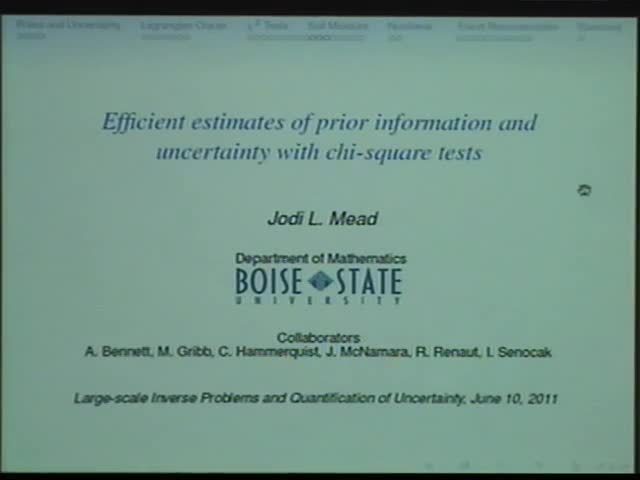Efficient estimates of prior information and uncertainty with chi-square tests
June 10, 2011
Keywords:
- covariance matrices, least squares, statistical test
Abstract
Many practical inverse problems are ill-posed, involve large amounts of data and have high dimensional parameter spaces. It is necessary to include uncertainty both to regularize the problem and account for errors in the data and model. However, when processes are modeled as random, a complete treatment of uncertainty requires specification of prior probability distributions for data or parameters. In this work statistical information in the form of uncertainty in parameters and state variables is assumed and propagated, however, the underlying probability distributions do not need to be specified or calculated. This results in an efficient approach to large-scale, ill-posed inverse problems.
Even though prior probability distributions are not necessarily specified, we are required to specify prior knowledge in the form of second moments or variances. We estimate these by applying chi-square tests to calculate the second moment of the error in a model, an initial parameter estimate, or data. Efficient newton-type algorithms have been developed to calculate regularization parameters, and estimate the standard deviation of data error. More recently, we have used chi-square tests to calculate diagonal error covariance matrices and these can be used to obtain non-smooth least squares solutions. Finally, we have developed the chi-squared method for nonlinear problems and will show some recent results. Applications with the chi-square method includes soil moisture estimation, lagrangian flow, and threat detection.
